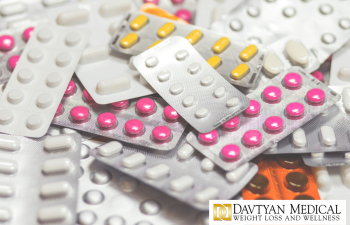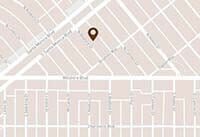
So, you are seriously considering losing weight through surgery. You and your doctor have thoroughly discussed weight loss surgery options and your doctor has recommended that gastric sleeve surgery is the option that will work best for you.
Because it is a medical intervention, you need to prepare physically, mentally, and emotionally before and after surgery. And of course, one of the major considerations that you should remember is if you are allowed to take any medications after undergoing gastric sleeve surgery.
Think about it: what if you have a medical condition that needs medication, will you still be allowed to take it? Or what if something hurts after the surgery? Can you take a pain reliever, or is it advised against?
The change in your stomach from the surgery may also result in other physical conditions. For example, if you frequently experience heartburn even before the procedure, undergoing gastric sleeve surgery may exacerbate the frequency or severity of the condition. In the event of a severe case of heartburn, you might wonder whether you’ll be able to take medications to relieve the condition.
Well, wonder no more. Read on as we discuss the medications you should avoid after your gastric sleeve procedure.
Stay Clear Of Nonsteroidal Anti-Inflammatory Drugs (NSAIDs)
Generally, you need to stay clear of nonsteroidal anti-inflammatory drugs or NSAIDs. Examples of NSAIDs include aspirin, ibuprofen, and naproxen. The reason for this is that NSAIDs may cause stomach ulcers. And since your stomach is still healing and adjusting after the surgical procedure, you don’t want to have any ulcers, right?
Of course, you might still feel that you need to take any of these medicines, especially if you are feeling feverish. Or you might be experiencing abdominal pain, nausea, vomiting, or shortness of breath. However, do not ingest these medicines without first consulting your surgeon or your family doctor. Remember that it is not good to self-medicate. Consult with your doctor so that they may prescribe either medication to protect your stomach in combination with the NSAID, or they may prescribe another medication altogether such as acetaminophen in place of NSAIDs.
Watch Out For Medicines With Sugar
You might be surprised, but it’s true: some medications do contain sugar. It is best to avoid these as well. The reason for this is that bacteria and viruses thrive on sugar. Even if it’s a small amount, it’s better to be safe than sorry. Sugar will weaken your body, and strengthen germs at the same time.
Being aware of where sugar comes from in our food and medicine intake should be part of the lifestyle changes that we need to make to ensure sustained weight loss. Some prescription and over-the-counter medicines you should watch out for are:
- Steroids that are used to treat inflammation
- Anti-anxiety drugs
- Anti-depression pills
- High blood pressure medication
- Medicines that lower cholesterol
- Antihistamines
- Ance-preventing pills
- Hepatitis C medication
- Asthma medication
- HIV medicine
- Decongestants
- Cough syrups
Seek the advice of your doctor for sugar-free medicines or medications that can be used as alternatives. For example, you can try sugar-free lozenges or throat sprays for sore or itchy throats. And don’t worry, there will be alternatives. Remember, diabetics have to avoid sugars!
Find Alternatives To Birth Control
If you are a woman who is undergoing gastric sleeve surgery and taking birth control pills at the same time, you’re going to have to find a different method of birth control. You see, birth control pills contain hormones that change the way a woman’s body works to avoid pregnancy. And since the stomach has also been changed with surgery, there might be some concerns about your absorption of vitamins, minerals, and nutrients. There might also be a risk of the malabsorption of hormones taken orally. Plus, Birth control pills may also raise your glucose levels which run counter to your weight loss goals.
Thankfully, there are plenty of alternatives to birth control pills. These include the use of non-hormonal methods such as:
- Intrauterine device or IUDs
- Male or female condoms
- The use of a cervical cap
- The use of a diaphragm
Find out from your doctor which method is the best to use that will affect your body post-surgery as little as possible.
Avoid Medicine That May Cause Deep Vein Thrombosis (DVT)
After surgery, you have a higher risk of developing deep vein thrombosis or DVT. It is a condition where blood clots form in the veins away from your heart. They’re commonly found in the legs. If a formed blood clot is dislodged, the clot may travel up to your lungs and cause a blockage, making it hard for you to breathe.
As some medications can cause this, it is best to find out what medicine can be the source and avoid them at all costs. Estrogen-containing medicines are one source. Another source, although not medicine, is smoking or nicotine use.
Protect Your Stomach From The Blind Insertion Of Nasogastric Tubes (NGTs)
A nasogastric tube (NGT) is a thin tube that goes into the nose up to the stomach for nutrients and hydration. So technically, this isn’t medication, but it’s something you should still avoid.
Normally, when there’s an emergency, an NG tube is inserted into a patient. Emergency personnel will usually insert the NG tube without using a viewing device such as a camera, but instead using their medical training and procedure.
The problem with this is that you had gastric sleeve surgery, meaning you don’t have much of a stomach anymore. The emergency workers will not likely know this, so they might over insert the tube, therefore creating a hole in your smaller stomach.
To avoid this, make sure to wear any medical bracelets or jewelry after surgery that clearly spells out “No Blind NGT.”
Ensure Your Health And Safety After Gastric Sleeve Surgery
Life goes on after undergoing weight loss surgery. How our life will unfold after the procedure depends largely on us and how prepared and committed we are physically, mentally, and emotionally to reach our weight loss goals for the improvement of our overall health.
Give yourself a pat on the back for reading through the article and getting to this point. It shows your desire to get the necessary information to help you prepare for a better quality of life after surgery. And while reading this article helps, as we mentioned plenty of times, it is still best to sit down with your doctor to discuss these matters. Your health and overall wellbeing are important. Therefore, do your best to leave no stones unturned in your quest for sustained weight loss towards a better quality of life.
You need all the physical, emotional, and informational support as you embark on your road to optimal health. If you want more information on your health and weight loss journey, we are here for you.
Visit us at Weight Loss Surgery LA and find the right information and support that you need from our medical experts. Our team will be with you every step of the way, from gathering information to making a decision on proceeding with weight loss surgery. Your weight loss success is our success as well.
Posted on behalf of Dr. David G. Davtyan MD, FACS, FICS





